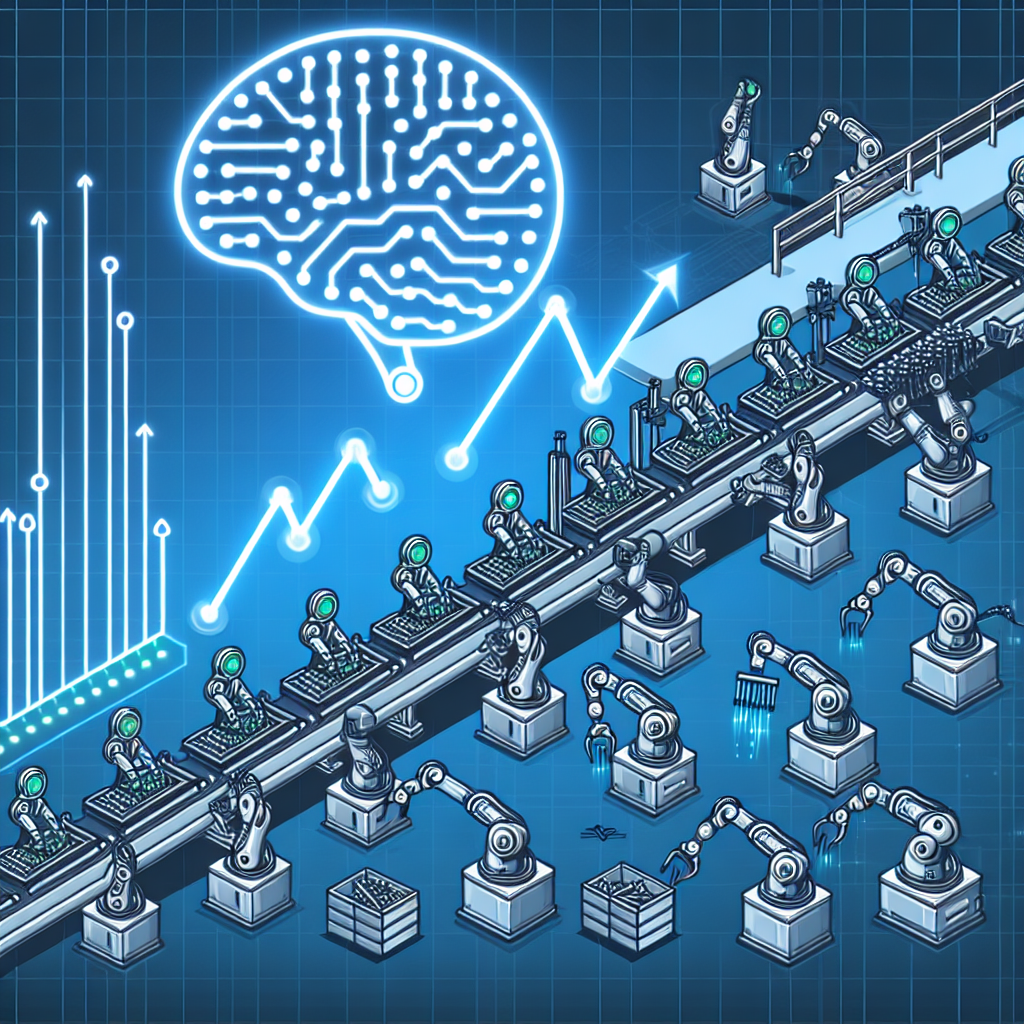In today’s fast-paced world, manufacturing companies are constantly looking for ways to increase efficiency, reduce costs, and improve productivity. One of the most effective ways to achieve these goals is through the use of artificial intelligence (AI) powered process optimization.
AI-powered process optimization involves using advanced algorithms and machine learning techniques to analyze data, identify patterns, and make real-time decisions to improve manufacturing processes. By harnessing the power of AI, manufacturers can streamline operations, reduce waste, and enhance overall performance.
There are several key benefits of AI-powered process optimization in manufacturing, including:
1. Improved efficiency: AI-powered process optimization can help manufacturers identify inefficiencies in their operations and make real-time adjustments to improve efficiency. By analyzing data in real-time, AI systems can identify bottlenecks, optimize production schedules, and reduce downtime, leading to increased productivity and cost savings.
2. Reduced costs: By streamlining operations and eliminating waste, AI-powered process optimization can help manufacturers reduce costs and improve their bottom line. By optimizing production schedules, inventory levels, and supply chain management, manufacturers can minimize waste and maximize efficiency, leading to significant cost savings.
3. Enhanced quality control: AI-powered process optimization can help manufacturers improve quality control by identifying defects and inconsistencies in real-time. By analyzing data from sensors and other sources, AI systems can detect anomalies and deviations from standard operating procedures, allowing manufacturers to take corrective action before defects occur.
4. Predictive maintenance: AI-powered process optimization can help manufacturers implement predictive maintenance programs to minimize downtime and reduce maintenance costs. By analyzing data from sensors and other sources, AI systems can predict when equipment is likely to fail and alert maintenance teams to take preventive action, reducing unplanned downtime and extending the life of equipment.
5. Increased flexibility: AI-powered process optimization can help manufacturers adapt to changing market conditions and customer demands by providing real-time insights and recommendations. By analyzing data from multiple sources, AI systems can help manufacturers make informed decisions about production schedules, inventory levels, and supply chain management, allowing them to respond quickly to changing market dynamics.
In addition to these benefits, AI-powered process optimization can also help manufacturers improve safety, reduce environmental impact, and enhance overall competitiveness in the market. By harnessing the power of AI, manufacturers can transform their operations and achieve new levels of efficiency and productivity.
FAQs:
Q: How does AI-powered process optimization work in manufacturing?
A: AI-powered process optimization in manufacturing involves using advanced algorithms and machine learning techniques to analyze data, identify patterns, and make real-time decisions to improve manufacturing processes. By analyzing data from sensors, machines, and other sources, AI systems can identify inefficiencies, bottlenecks, and opportunities for improvement, leading to increased efficiency, reduced costs, and improved quality control.
Q: What are some examples of AI-powered process optimization in manufacturing?
A: Some examples of AI-powered process optimization in manufacturing include predictive maintenance, quality control, production scheduling, and supply chain management. By using AI to analyze data from sensors and other sources, manufacturers can predict when equipment is likely to fail, detect defects in real-time, optimize production schedules, and improve inventory management, leading to increased efficiency and cost savings.
Q: What are the benefits of AI-powered process optimization for small manufacturers?
A: Small manufacturers can benefit from AI-powered process optimization by improving efficiency, reducing costs, and enhancing quality control. By harnessing the power of AI, small manufacturers can streamline operations, minimize waste, and respond quickly to changing market conditions, leading to increased competitiveness and profitability.
Q: How can manufacturers implement AI-powered process optimization in their operations?
A: Manufacturers can implement AI-powered process optimization in their operations by investing in AI technology, training employees on how to use AI systems, and integrating AI into existing processes and systems. By partnering with AI vendors, manufacturers can access advanced algorithms and machine learning techniques to optimize their operations and achieve new levels of efficiency and productivity.
Q: What are some challenges of implementing AI-powered process optimization in manufacturing?
A: Some challenges of implementing AI-powered process optimization in manufacturing include data security concerns, lack of expertise, and resistance to change. Manufacturers may face challenges in collecting and analyzing data, training employees on how to use AI systems, and integrating AI into existing processes and systems. However, with proper planning and support, manufacturers can overcome these challenges and reap the benefits of AI-powered process optimization.

